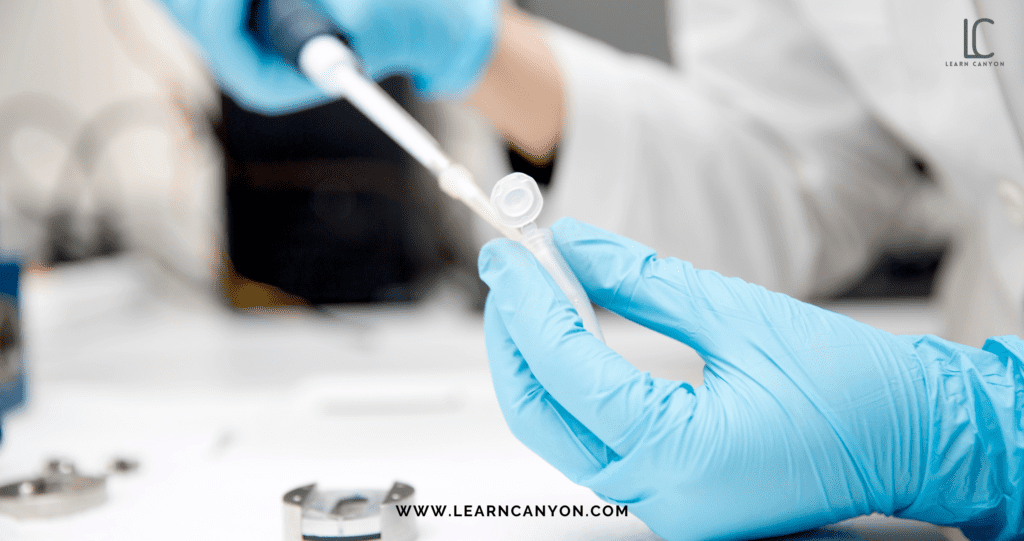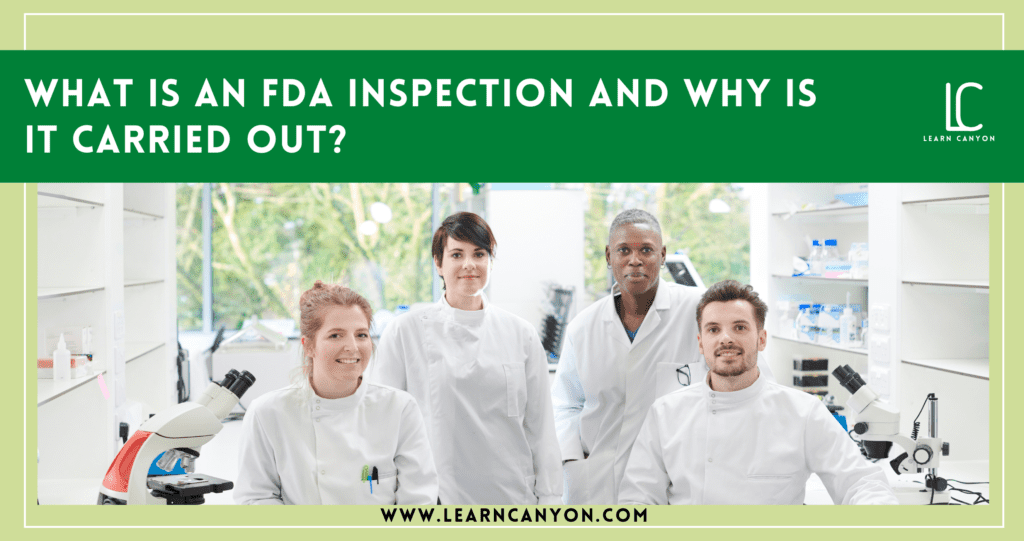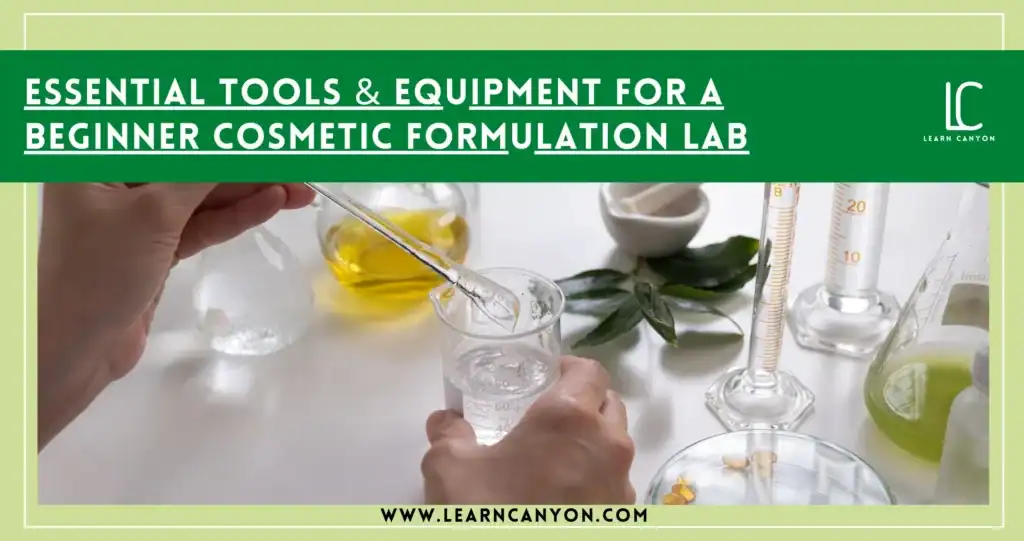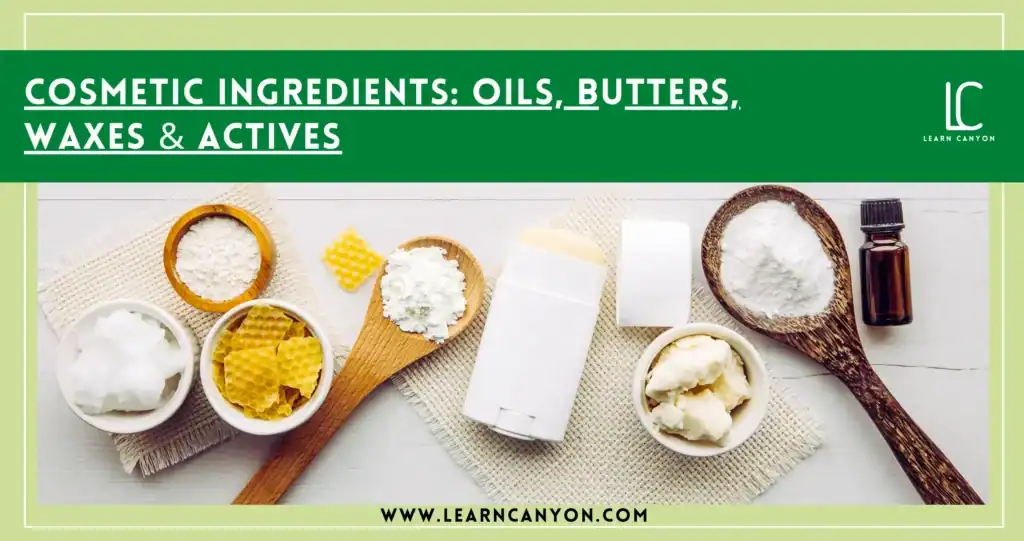Hi, I am Dr. Sampada Pandhare and I’ve worked in a Cosmetic and Ayurvedic firm for almost 21 years as an approved Technical person in cosmetic production, and I’ve been through FDA inspections so many times that I want to share my experiences of dealing with the FDA inspections.
As I was not prepared in my early phases of working, I had gone through all of the good, poor, and extremely bad situations.
I would like to share my learnings from my own experiences with you. I was a recent cosmetic technology graduate when I joined the production unit, and I was ignorant of such checks.
But now that I’m older and have dealt with a lot more FDA inspections, I could definitely advise you on how to deal with them.
In this blog, we will be discussing Successfully dealing with a Food and Drug Administration Inspection (FDA inspection)
As we all know, the FDA has varied guidelines in different nations. Every country has its own set of FDA regulations.
All FDA-regulated organizations must be prepared to be inspected at any moment.
An FDA inspector may come to check the premises where any drug or cosmetic product is manufactured, labeled, tested, standardized, sold, or distributed within the local limits of the area for which he or she is designated.
An FDA inspection is not the same as an ISO certification or a surveillance audit.
The goal of an FDA inspection is to prevent the manufacturing, sale, distribution, and use of poor food, medication, or cosmetic items, protecting customers from hazardous side effects.
Another goal of the inspection is to catch people who are making, selling, or distributing illegal drugs. Let us now discuss .
Powers of an FDA Inspector
The FDA has the authority to inspect any facility that manufactures, sells, or distributes food, cosmetic or medicine items. They can even look for proof of a crime that has already occurred.
They also have the authority to enter and search any location they feel is being utilized for an illegal purpose. The FDA can stop and inspect a vehicle, a vessel, or any other material being transferred from one location to another, in addition to looking for evidence of an offense.
They can examine a record, register, document, or other material and seize the same if they have reason to believe that it may furnish evidence for the commission of an offense punishable under the Act.
Read Article: Do You Need A License To Sell Skincare Products
Different types of FDA inspections
There are four types of FDA inspections: pre-approval inspections, routine inspections, compliance follow-up inspections, and for-cause inspections.
1. Pre-approval inspections
Things are undertaken when a producer submits a proposal to the FDA to create and market any Cosmetic, Ayurvedic, or Food item.
A pre-approval inspection validates the region shown on maps and information provided on the application, as well as the facility’s suitability for manufacturing by Good Manufacturing Practices (GMP)
2. Routine inspection:
Regular inspections are mandated by law and carried out by inspectors regularly.
The goal of these inspections is to verify and confirm the techniques used in the production area and to verify whether an organization is maintaining
Batch Manufacturing Records (BMR) as per Standard Operating Procedures (SOP).
As a result, it is suggested that the manufacturer be prepared and ready for an FDA inspection at all times.

3. Follow-up inspection:
Routine inspections are when the company receives any actions during a normal inspection, such as warning letters or injunctions, compliance follow-up inspections are conducted.
After a reasonable amount of time has passed, FDA inspectors will return to check and verify the steps taken in response to the observations.
The FDA has confirmed that it has responded appropriately and that any previous violations have been remedied.
4. For-cause inspection
It is when consumers or anybody else reports an issue to the FDA, an inspection for a specific reason occurs.
Events that may have caused a substantial harmful reaction, or a product that is misbranded, spurious, or contaminated, can trigger these inspections.

Who will accompany the FDA Inspector during an FDA inspection?
When an FDA inspector begins an inspection, the FDA inspector should be accompanied at all times by a technically qualified person within the organisation, such as the plant or production manager.
It’s in your best advantage to learn everything you can about the FDA’s inspection methods. If you have any doubts about the FDA Inspector’s behaviour, don’t be afraid to ask questions.
The confidence of a knowledgeable person will give the FDA inspector a positive impression. When they arrive, take them to the office or a conference room where your company’s management representative will speak with the inspector face to face.
Make sure that someone from the organisation, in addition to the management representative, takes minutes throughout the inspection and records all pertinent information.
What does an FDA inspector look for?
- Are the premises & production facilities approved?
- Are the products manufactured approved?
- Are production activities done in presence of the approved technical person?
- Are the materials and the movement of personnel logical?
- Is there a mixup between different categories of materials in the raw material division?
- Is there a mixup between different categories of materials in the packaging material division?
- Is everything labeled?
- Is everything protected from the harmful effects of the environment?
- Are the records updated?
- Are the quality parameters followed?
- Is any illegal activity going on?

Do’s & Don’ts during an FDA inspection
Do’s
- A management or competent person accompanying an FDA inspector should be confident, courteous, and polite during the inspection; if a person appears confident during the inspection, it can affect the entire performance.
- Pay close attention to what the Inspector says and give a precise response accordingly.
- Always assume that an FDA inspector knows everything there is to know about your firm and operating systems, and that he or she is checking to see if you are aware of them. If you don’t understand the inspector’s inquiry, ask him to repeat himself or explain it to you.
- If the investigator requests the document, always make sure that it is updated before being shown to them. The material requested should be correct and complete, with no gaps in the information.
- The most significant section of the document is the entries with the date and a legitimate signature.
- The plan that has been approved by the authority should be displayed on the walls of the premises so that an FDA inspector can easily check whether the building meets the law’s requirements.
- The building used for the factory shall be designed, constructed, adapted, and maintained to suit the manufacturing operations to permit the production of drugs under hygienic conditions.
- It must comply with the conditions outlined in the factories act, and it must also determine whether the premises used for manufacturing, processing, warehousing, packaging, labeling, and testing are compatible with other drug manufacturing operations that may be carried out in the same adjacent section.
- They must also determine whether the working space available allows for orderly equipment placement.
Don’ts
- Never try to impress the inspector with your knowledge and never correct others in front of them. Words like “I believe,” “I’m not sure,” and “in my view” should not be used.
- Never give any FDA inspector full access to the files and/or rooms by themselves. Always have someone from your company that accompanies him during the inspection.
- Never lie during an inspection as it may back-fire on you and your company if they ask for more proof, which they generally do.
For manufacturers, an FDA inspection is an important step in the approval process, and failing an inspection can set a company’s go-to-market strategy back by months.
If a company isn’t prepared to meet the FDA’s requirements, an inspection could lead to closing the company’s operations altogether.
How to Get Ready for a Successful FDA Inspection Audit
With all of this in mind, what should Manufacturers do to get ready? Here are five essential points to remember in order to pass an FDA inspection or audit:
1. Make certain you understand what the FDA is looking for.
The FDA highlights the necessity of understanding as much as possible about the inspection process in “What Should I Expect During an Inspection?”
“It is in your best advantage to thoroughly comprehend FDA’s inspection methods,” it reads flatly.
So, what will FDA agents be on the lookout for?
What’s more essential, how will people look for it?
To find answers to these inquiries, you’ll need to go deep into the FDA’s Investigations Operations Manual and other relevant documents.
The purpose of an FDA inspection or audit is to demonstrate compliance as a starting point.
The FDA doesn’t expect anything more, and going above and above in one area won’t compensate for a lack of compliance in another.
Compliance across the board and, more importantly, the capacity to demonstrate compliance with adequate documentation is required to pass an inspection or audit.
2. Make certain you are aware of the FDA’s findings.
Once you know what FDA agents will be looking for, you can concentrate on what they will discover. This entails executing an internal audit or inspection before the FDA’s arrival.
The goal of this investigation, like any other internal inspection or audit, is not to substantiate the company’s desired outcome, but rather to provide unbiased insight into the soundness of the company’s FDA compliance program.
If there are concerns that need to be addressed, identifying and fixing them before the FDA begins its investigation will be crucial for avoiding unpleasant questions and unfavourable outcomes.
The FDA agents performing your company’s inspection or audit will do their job diligently and thoroughly, leaving no stone unturned.
3. Make certain that Proper things are placed at Proper place
Ensure that all materials, utensils, records, and samples in your firm are correctly stored in their designated areas.
Cleaning measures are followed, as well as sanitary manufacturing processes such as wearing a headcover and gloves. To avoid contamination, the product is not exposed to the air.
4. Prepare and get ready.
Then it’s time to get ready, ready, ready. Companies facing FDA inspection audits should make sure their facilities are ready, as well as have the essential documentation on hand and ready to talk with FDA officials on the ground.
Anyone who will interact with FDA agents should be briefed on what to expect, what to say, and what not to say, and clear channels of command should be in place in the event that concerns occur that are above an employee’s level of authorization, knowledge, or experience.
An FDA inspection is a procedure that can take a long time to complete.
While company leaders may be eager to finish the process and receive a result, rushing it might cause problems.
5. Collaborate as quickly as possible with the FDA to resolve any issues.
It is fairly uncommon for problems to occur during an FDA investigation, even with adequate planning.
“What should I expect during an inspection?” the agency explains.
At the end of the inspection,
what does an FDA Inspector do?
At the end of the inspection, the inspector will issue a written report of any disorders or observations, which, in the FDA inspector’s judgment, indicate objectionable conditions.
This list of ‘Inspectional Observations,’ also called an FDA Form, can be used by the company as a guide for corrective action, there’s a possibility that the FDA inspector will recommend specific corrective measures.
Your organization should respond to the FDA form during the discussion with the inspector.
In the case that a response is issued, the Form (notice of inspection) will be supplied, along with contact information.
- The form describes the agency’s inspection power and sets forth the inspector’s and firm’s expectations.
- This is given to the organization’s top management official or the most accountable person on the inspection site.
- These remarks do not constitute complete work on compliance.
- The formal inform top management of the organization’s unacceptable conditions or practices relating to violations of the Federal Food, Drug, and Cosmetic Act (FD&C Act) If a response is issued, the form notice of inspection, as well as contact information.
FDA expects companies to develop their corrective measures in the majority of circumstances.
Ultimately, the goal is to receive the FDA’s seal of approval, and company managers need to keep this in mind before, during, and after the inspection.
Now, let us sum-up all about FDA inspection.
Frequently Asked Questions
What happens during an FDA inspection?
There are a lot of things that can go wrong in doing your job. The FDA, for example, may choose to inspect one of your businesses products at any given time for a reason or another and no matter what, you’ll have to deal with it.
So be prepared! They’re going to stand around and watch as they ask you questions about every aspect of what you do while also inspecting every area that stores products or is in the process of being fixed up, so don’t act like all this is new information, because we both know it isn’t.
How do you pass an FDA inspection?
– Improve FDA inspection procedures by making them clear and concise
– Keep your important documents & records in a binder that’s easy to inspect
– Label items to make them easier to find
– Upon your last inspection, compile product complaints and CAPAs
– Corrective actions/recalls should be reported and documentation kept up to date
– Prepare for FDA inspections by conducting mock inspections
What happens if you fail FDA inspection?
OAI (Official Action Indicated) – Inspectors identified violations requiring mandatory corrections. If these errors are not fixed, the FDA may impose administrative and/or regulatory sanctions on your business
Types of FDA Inspections
– Pre-approval
– Routine
– Compliance follow-up
– For-cause
Final Thoughts
Living each day as if the FDA inspection is going on in the organization is advisable, to avoid chaos. Most of the organizations are unprepared to manage an FDA inspection because the work procedures are not followed properly.
There should be written procedures for daily, fortnightly, and monthly activities. And those should be followed without fail.
Mock FDA inspection should be performed annually. The guidance documents and regulatory requirements should be maintained.
The US / Indian Food and Drug Administration (FDA) is responsible for helping to ensure that dangerous foods, medicines, cosmetics, and other products do not make their way into consumers’ hands.
One of the ways it fulfils this responsibility is by conducting inspections and audits of manufacturers’ facilities.
Our Courses
If you are wondering where to start your cosmetic formulation journey, you have landed in the right place, where you can become an expert cosmetic formulator and start your cosmetic business with our certification courses.
Our courses included step-by-step procedures to understand formulation techniques to learn to implement and create cosmetics from scratch quickly. To get started you can go through our courses and certification programs here.











